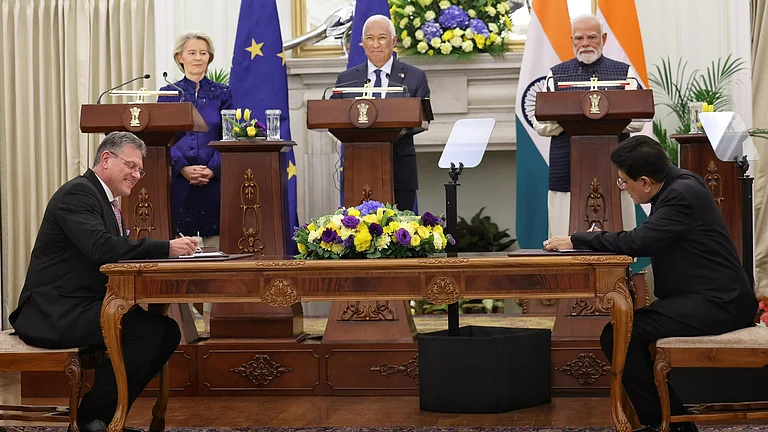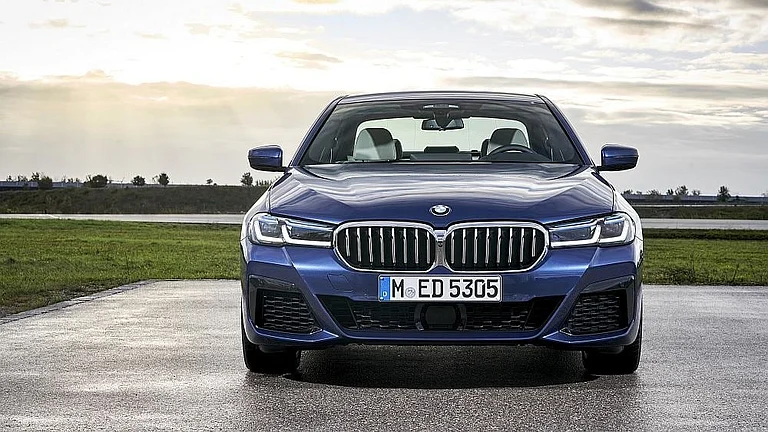The European Union’s insistence on incorporating stringent sustainability measures, including deforestation rules and a carbon tax on imports of high-carbon goods like steel, cement, and hydrogen, is raising concerns in India. Officials close to the matter have warned that these measures could act as non-tariff barriers, potentially stalling ongoing free trade negotiations between India and the EU.
India plans to bring these issues to the forefront during the next round of talks for the proposed India-EU free trade agreement (FTA), scheduled for September 23-27. Two individuals with direct knowledge of the discussions, who wished to remain anonymous, confirmed that New Delhi would challenge the EU's Carbon Border Adjustment Mechanism (CBAM) and the deforestation regulation (EUDR) during these talks.
This upcoming meeting marks the ninth round of negotiations since both sides resumed talks in June 2022. In addition to the FTA, negotiations are also underway for an Investment Protection Agreement (IPA) and a Geographical Indicators (GIs) Agreement. The eighth round, which concluded in June, saw progress with two chapters one on small and medium enterprises and the other on sustainable food systems—being finalised.
While India remains committed to environmental protection and sustainability, as evidenced by Prime Minister Narendra Modi’s Lifestyle for the Environment (LiFE) initiative, there is significant concern over the EU's push to include EUDR and CBAM as part of trade commitments. Indian officials argue that these measures are perceived as protectionist tools that could unfairly disadvantage Indian exports, effectively acting as non-tariff barriers.
CBAM, designed to impose a tax on carbon-intensive products, aims to prevent “carbon leakage” by levying tariffs on imports of high-carbon goods such as cement, aluminium, fertilisers, chemicals, iron, and steel from countries like India. The phased implementation of CBAM began in October 2023 and will be fully operational by January 2026.
EUDR, which mandates that certain imported commodities—including cattle, wood, cocoa, soy, palm oil, coffee, and rubber—be certified as deforestation-free, will come into effect from December 30, 2024. Indian industries fear that these regulations, particularly CBAM and EUDR, will render their products uncompetitive in the European market.
There is a growing sentiment within the Indian industry that developed economies, including EU states, are creating innovative means to restrict imports from developing nations. They argue that measures like CBAM and EUDR violate World Trade Organisation (WTO) agreements.
EU Ambassador Hervé Delphin, however, has refuted these claims, stating that CBAM is not an instrument of protectionism but part of the EU's broader climate agenda focused on decarbonisation and sustainability. He dismissed concerns over CBAM as "misconceived fear," explaining that if protectionism had been the goal, the mechanism would have been designed differently.
Delphin further noted that both India and the EU share a common interest in developing resilient supply chains, especially during a time when global supply chains are being reconfigured for optimisation. He acknowledged, however, that the FTA negotiations would require a "strategic and political drive" as talks become increasingly complex.
The EU is India’s second-largest export destination, with $76 billion in merchandise exports in 2023-24. The bloc imported over $59 billion worth of goods from India during the same period. As negotiations continue,
Indian officials have cautioned that securing an FTA with the EU will be challenging if the bloc insists on what they consider "inequitable" regulations, despite India’s significant efforts towards a green transition.































